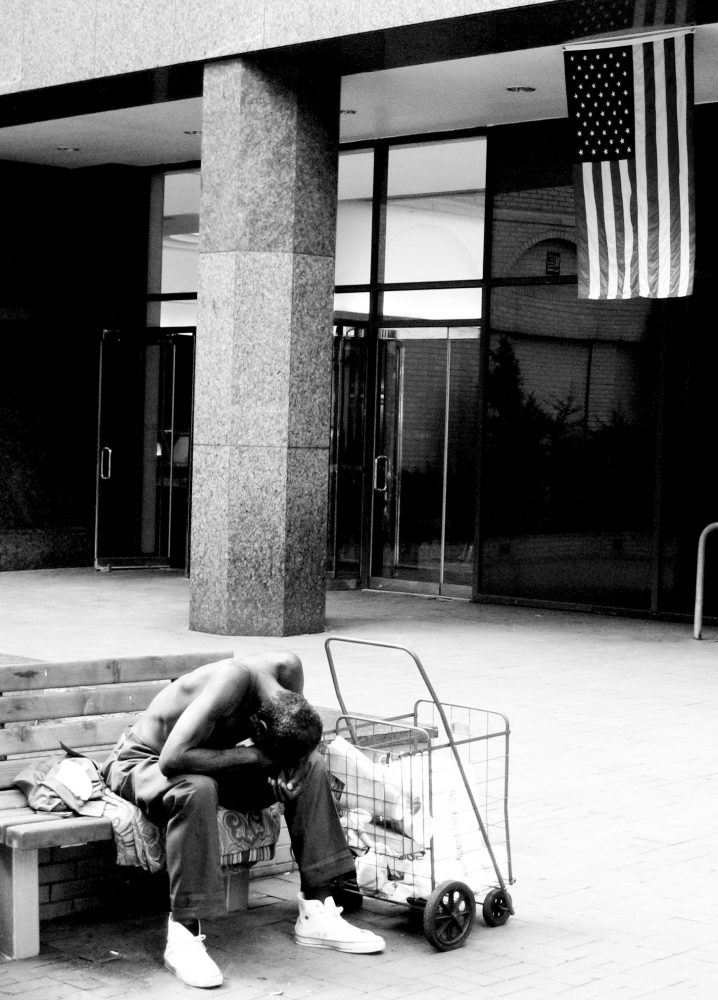Like a plot straight out of a dystopian novel, there is a city that in the past three years has attempted to bus the homeless residents out of its city limits, restrict their living spaces and their ability to make a meager income by selling things off of the street. That city is now arresting those who try to give them food. The hero of our story, Arnold Abbot, a 90-year-old Fort Lauderdale resident, was cited with his third criminal violation in the past month for attempting to feed the homeless.
Earlier this fall, the city of Fort Lauderdale, Fla., took the next step in a process that some people call “chocking out every avenue for the homeless to survive”. On Oct. 22, 2014 the city passed a new ordinance restricting the ability of groups to feed the homeless in public.
The ordinance limits locations for food distribution on public property by requiring permission from property owners, as well as the availability of public toilets for participants. Passing with a 4-1 vote, the new ordinance became the third in two months that makes life more difficult for some of Fort Lauderdale’s least well-off.
Fort Lauderdale has taken actions before in attempts to avoid this current situation. In 2011, the city attempted to use 25,000 dollars confiscated from criminals to provide one-way bus tickets for the homeless out of the city.
While the law stipulated that the tickets will only be provided if a family member at the destination was willing to take in whomever was being sent. The ordinance was met with large amounts of protests, which, in my opinion, very fairly argued that if there truly was a family member willing to take in a homeless relative, they would have taken actions to do so prior, and that the law was a veiled attempt to “clean up” homelessness from the streets of Fort Lauderdale.
A closer look at the ordinances reveals that aesthetic beauty is one of the city’s priorities. Ordinance C-14-41, an anti-camping law, explicitly states the goal of the ordinance is to promote the public health of the city’s citizens and “establish, maintain, and preserve aesthetic values and preserve and foster the development and display of attractiveness” of Fort Lauderdale.
The ordinance continues, explaining how a “camp site” is illegal if it “tends to impair, obstruct, and otherwise detract from the use of the property for its intended purpose.”
The recent arrests of Arnold Abbot drew attention to a much larger problem in our country. According to the National Coalition for the Homeless (NCH), since January 2013, 21 cities have successfully passed legislation restricting the sharing of food with those experiencing homelessness, and at least 10 other cities have pending legislation .
One of these cities is our very own St. Louis, where costly permits have slowed or shut down food distribution for several organizations devoted to helping those experiencing homelessness.
This is America’s war on poverty.
So this is an open call to American lawmakers to reassess our country’s priorities. Why, and how, did we transition from Lyndon B. Johnson’s “War Against Poverty” to today’s war against poor people? And how has the “intended purpose” of a bench become more important than the integrity of a human being? Or can you please explain to me when the “pursuit of happiness” no longer included the pursuit of shelter, income, or a daily meal?
Fortunately, we can begin efforts to reverse the stem of mistreating the poor of today.
You can add your name to a petition at www.petitionsite.com, searching for “Fort Lauderdale don’t criminalize the homeless,” to show the city council that thousands of people disagree with the way they are performing their jobs. Here in St. Louis, you can look on www.homelessshelterdirectory.org to find a place to volunteer your time.
Even closer to home is SLU’s Campus Kitchen, which “coordinates food donations to use in the preparation of meals that are delivered to community agencies identified by the St. Louis Food Bank and other referring agencies.”
These problems won’t go away without people acting on them, so let’s get busy folks.











